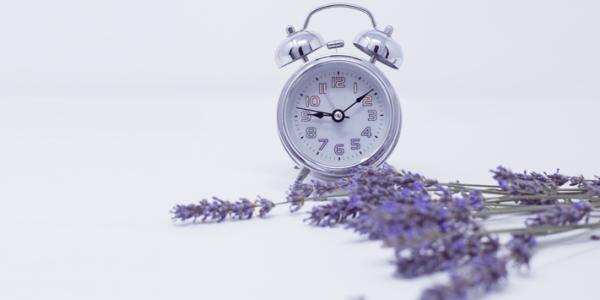
Your circadian rhythm is the 24-hour internal clock that helps your body function according to a regular schedule.
Our bodies have four different biological rhythms that are responsible for the natural cycle and changes in our functions and chemicals. The circadian rhythm is the most well-known, and perhaps the most important in keeping our bodies in a regular routine that promotes healthy sleep and function. The circadian rhythm starts with the cells in the body, which monitor changes in the environment — such as darkness and light — and then send signals to the brain that it is time to go to sleep or wake up.
But the circadian rhythm impacts many other processes that also affect your sleep and wakefulness cycle. In a normal circadian cycle, the body produces hormones that help the body function at appropriate times. For example, melatonin is a hormone that induces sleepiness, so the body produces more of it at night. In the early morning hours, when energy is needed to awake and get moving, the body naturally produces more cortisol, which makes you more alert. Even your body temperature is regulated by the circadian rhythm, with a natural temperature drop at night when it’s time to sleep, and a slow increase in body temperature in the morning just before it’s time to wake up.
Unfortunately, in our hectic world where schedules are frequently erratic, it’s easy to disturb our circadian rhythm. We often refer to this as being “out of sync”, because that’s exactly what it is. Having a day or two when your lifestyle is going against your internal clock is bound to happen every now and then, and most people can quickly revert to their normal routines and rhythms without too much difficulty. The best example is having a late night or two that interferes with your normal bedtime routine, and results in a lack of sleep that impacts the way you feel and perform the next day. The jet lag you deal with after a long flight is an example that throws your internal clock off temporarily. But frequent or long-term disruptions to our normal circadian rhythms can cause a host of health concerns, including chronic insomnia, depression, daytime sleepiness and lack of energy. Over time, being out-of-sync with your body clock can increase your risk for obesity, cardiovascular disease, diabetes, gastrointestinal problems, neurodegenerative disorders (including dementia), skin issues and more.
At various times, anyone can be susceptible to circadian rhythm disturbances due to lifestyle factors and illnesses, but the risk is higher for people who:
- Work shift work. People who work from late afternoon until late night or overnight (commonly called the graveyard shift), such as healthcare workers, often have circadian rhythm issues.
- Have irregular or erratic schedules that can swing between late nights and early mornings.
- Travel frequently, across multiple time zones.
- Experience high levels of stress on an ongoing basis.
- Have dementia, brain damage or head injuries.
- Take certain medications, including some sleeping aids.
- Have inconsistent sleep routines and poor sleep hygiene.
Fortunately, with some time and consistent effort, most people can reset their circadian rhythm and get their body back in balance with their internal clock. Many of the recommended steps are similar to the good sleep habits we should be striving for:
- Expose yourself to the sun first thing in the morning. This alerts the cells to the change in light, which in turn signals the brain that it is time to wake up.
- Get a daily dose of exercise. Exercise supports the normal flow of your internal body clock, and may also help increase cortisol production to keep you alert during the day.
- Avoid screens for at least an hour before bedtime. The blue light emitted from screens can suppress melatonin production and keep you from feeling sleepy at your normal bedtime.
- Avoid alcohol, nicotine and caffeine in the afternoon and evening. Everyone reacts differently to these substances, so try cutting them out after 2 p.m. and see how your sleep is impacted.
- Make sure you sleep in a cool room that is quiet and completely dark. Even the light from computers or clocks can send conflicting signals to your brain, so cover any light with a scarf or towel to keep it from interfering with your sleep.
- Talk to your doctor about any medications you take that may disrupt your circadian rhythm — including sleep aids. There may be another alternative, such as a different medication, exercise or therapy that may help with some issues.
Finally, remember that you will feel and perform your best — and help reduce your risk of serious, chronic diseases — if you are in sync with your natural circadian rhythms. It’s important to your health and happiness to determine how to best keep your body functioning in its natural rhythm.
This article first appeared in the October 2020 edition of the HealthPerks newsletter.

